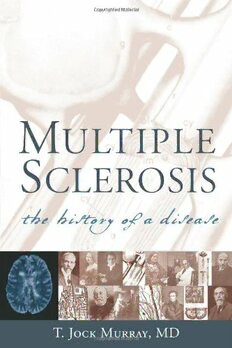
Multiple Sclerosis: The History of a Disease PDF
594 Pages·2005·7.447 MB·English
Most books are stored in the elastic cloud where traffic is expensive. For this reason, we have a limit on daily download.
Preview Multiple Sclerosis: The History of a Disease
Description:
In this elegantly written and comprehensive history, we meet individuals who suffered with multiple sclerosis in the centuries before the disease had a name, including blessed Lidwina of Holland, who took joy from her misery, believing that she was sent to accept suffering for the sins of others; Augustus, grandson of George III and cousin of Queen Victoria, whose case shows how someone with access to the best of medical care of the age was understood and managed; and Heinrich Heine, the great German poet, who also had access to all medical services that were available, but who progressed into his mattress grave in two decades, aware of the loss of physical ability while still able to compose great poetry to the end. From these early cases the author demonstrates how progress in diagnosing and managing multiple sclerosis has paralleled the development of medical science, from the early developments in modern studies of anatomy and pathology, to the framing of the disease in the nineteenth century, and eventually to modern diagnosis and treatment.
See more
The list of books you might like
Most books are stored in the elastic cloud where traffic is expensive. For this reason, we have a limit on daily download.
